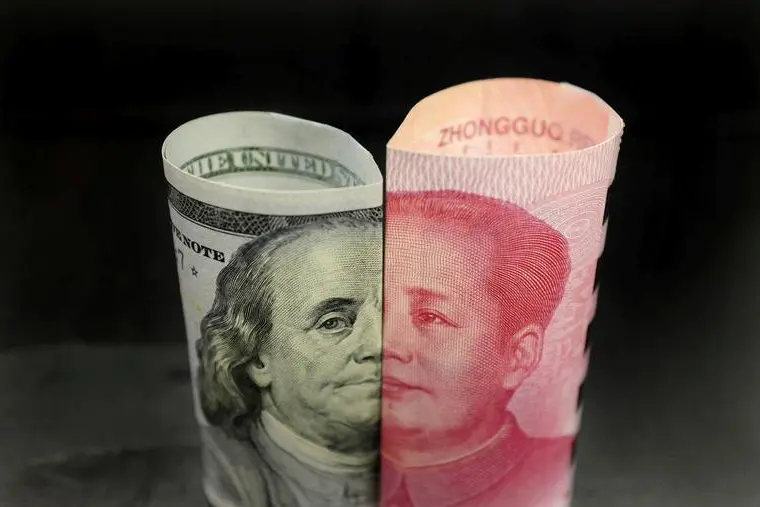PHOTO
SHANGHAI - The yuan weakened on Friday as fears over a resurgence in coronavirus infections sapped investor risk appetite and raised doubts over a speedy global economic recovery.
A worrisome spike in cases in the United States has sparked concerns over a second wave, prompting a sell-off on Wall Street that spilled into emerging market assets.
The U.S. dollar held firm against riskier currencies in early trade, while the Chinese unit is poised for its biggest one-day weakening in percentage terms in two weeks.
Prior to market opening, the People's Bank of China (PBOC) set the midpoint rate at 7.0865 per dollar, 257 pips or 0.36% weaker than the previous fix of 7.0608.
In the spot market, onshore yuan opened at 7.0849 per dollar and was changing hands at 7.0846 at midday, 206 pips weaker than the previous late session close.
"Developments in the virus situation, Sino-U.S. relations are likely to support risk-off sentiment and the dollar in the short term," said a trader at a Chinese bank.
Keeve Tan, head of futures and leveraged FX at OCBC Securities in Singapore, said U.S. threats to impose sanctions on Hong Kong, if carried out, could hurt trade ties and subsequently deprive China of dollar liquidity.
"Potential trade sanctions pose significant risks and can lead to major moves in the USD/CNH. Whether the PBOC does it through reducing liquidity to support the currency or otherwise, it is still in their interest to keep the moves in the USD/CNH under control, in spite of escalating Sino-U.S. tensions."
Sino-U.S. relations have soured over a broad range of issues from trade to Hong Kong's new security law.
However, Gao Qi, FX strategist at Scotiabank in Singapore, said he expects the yuan basket to rebound. But he maintained his short USD/CNH position made earlier this week, with a target of 6.95 per dollar, and stop loss at 7.12.
(Reporting by Winni Zhou and Andrew Galbraith; Editing by Jacqueline Wong) ((winni.zhou@thomsonreuters.com; +86 21 2083 0100; Reuters Messaging: winni.zhou.thomsonreuters.com@reuters.net))





















